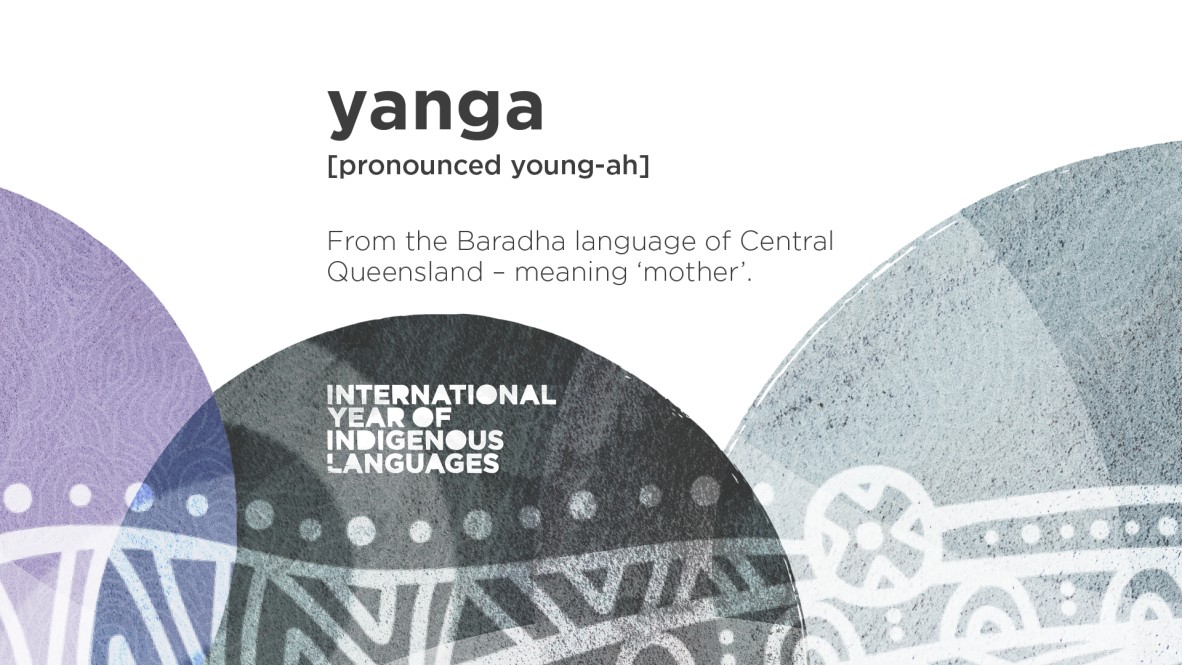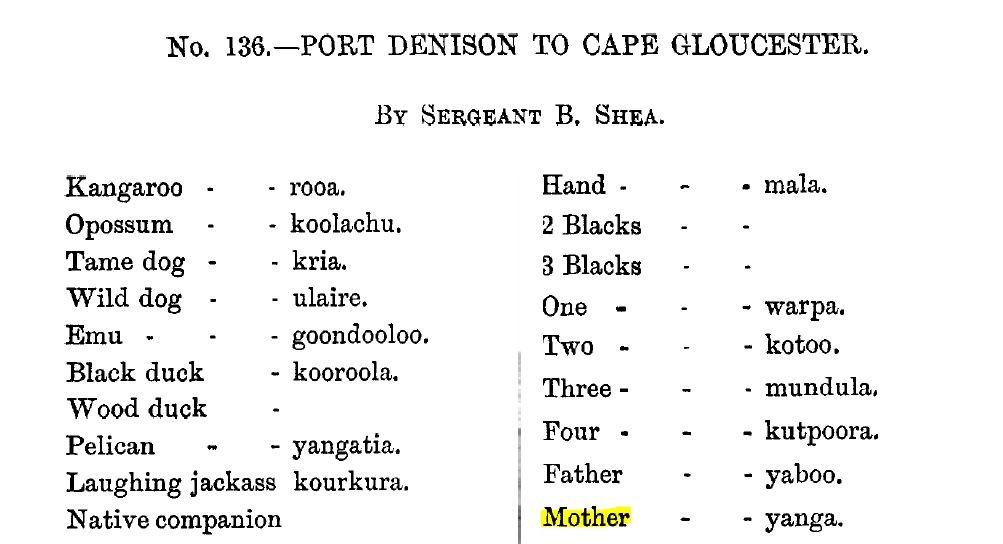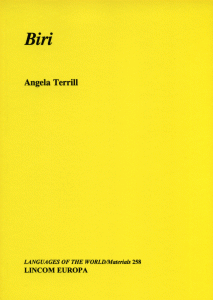2019 International Year of Indigenous Languages: Word of the Week - Week Eight.
By administrator | 19 February 2019
As part of State Library's commitment to the 2019 International Year of Indigenous Languages, we will be promoting a 'word of the week' from one of the 125+ Aboriginal and Torres Strait Islander languages and dialects from across Queensland.

IYIL2019 Word of the Week: Week 8.
This week’s word is yanga from the Baradha language of Central Queensland, extending from Lotus Creek along the inland ranges, particularly the Connors Ranges towards Nebo – it means ‘mother’. This week's word coincides with International Mother Language Day which is celebrated on 21 February; follow State Library on Twitter to discover more words relating to 'mother' from other Aboriginal and Torres Strait Islander languages.

Curr (1887) Port Denison to Cape Gloucester.
yanga is used in several languages across Central and Southern Queensland. Baradha is closely related to neighbouring languages and is considered to be part of the Biri language chain – these groups include Biri, Wiri, Yangga, Yilba, Miyan, Gabulbarra, Baranha, Yambina, Yetimarala, Gariynbal. All of these languages and dialects have many shared words such as yanga. The above image taken from Curr (1887) shows a word list from Port Denison (present-day Bowen) from Giya language. Giya takes in Proserpine and is a northern neighbour to Baradha.

Terrill, A. (1998) Biri. J 499.15 TER
Angela Terrill''s work Biri is an excellent source of information on Baradha and neighbouring languages of Central Queensland; Terrill draws upon historical sources and wordlists from the Central Queensland region. Additional material for Baradha includes the Meston Notebooks as well as W E Roth's 1901 report "The Aborigines of Rockhampton", while contemporary linguistic work was undertaken by Breen in 2009.
State Library of Queensland invites you to celebrate the 2019 International Year of Indigenous Languages as we raise awareness of the rich diversity of Queensland’s Aboriginal and Torres Strait Islander languages.
Join the conversation as we post a new word for each week!
Week Eight 19-25 February 2019.
#IYIL2019 #IYIL #IY2019WordoftheWeek #SLQIndigenousLanguages
Desmond Crump
Indigenous Languages Coordinator, State Library of Queensland
State Library of Queensland Aboriginal and Torres Strait Islander Languages Webpages
State Library of Queensland Aboriginal and Torres Strait Islander Languages Map
UN IY2019 Links
UN International Year of Indigenous Languages webpages
UN International Year of Indigenous Languages Resources
References
The word of the week has been sourced from the following linguistic text in the State Library collections.
Source:
Source: Terrill, A. (1998) Biri. J 499.15 TER
Further Reading
Other materials in the State Library collections relating to Baradha and neighbouring languages include the following:
Breen, G. (2009) “The Biri dialects and their neighbours”. Transactions of the Royal Society of South Australia, V133, No.2. SER 506.942
Curr, E. M. (1887) The Australian Race: its origins, languages, customs, place of landing in Australia and the routes by which it spread itself over that continent. John Ferres Government Printer: Melbourne. RBF 572.994 cur
Holmer, N. (1983) Linguistic Survey of South-Eastern Queensland. J 499.15 HOL
Meston, A. (undated) Archibald Meston Papers 1860-1960. OM64-17
Roth, W. (1898) The Aborigines of the Rockhampton and surrounding coast districts. Microfilm. FILM 0714
Thozet, A. (1866) Notes on some of the roots, tubers, bulbs, and fruits used as vegetable food by the Aboriginals of northern Queensland, Australia.
Tindale, N. B. (1974) Aboriginal tribes of Australia: their terrain, environmental controls, distribution, limits and proper names. Q 994.0049915 tin
Comments
Your email address will not be published.
We welcome relevant, respectful comments.